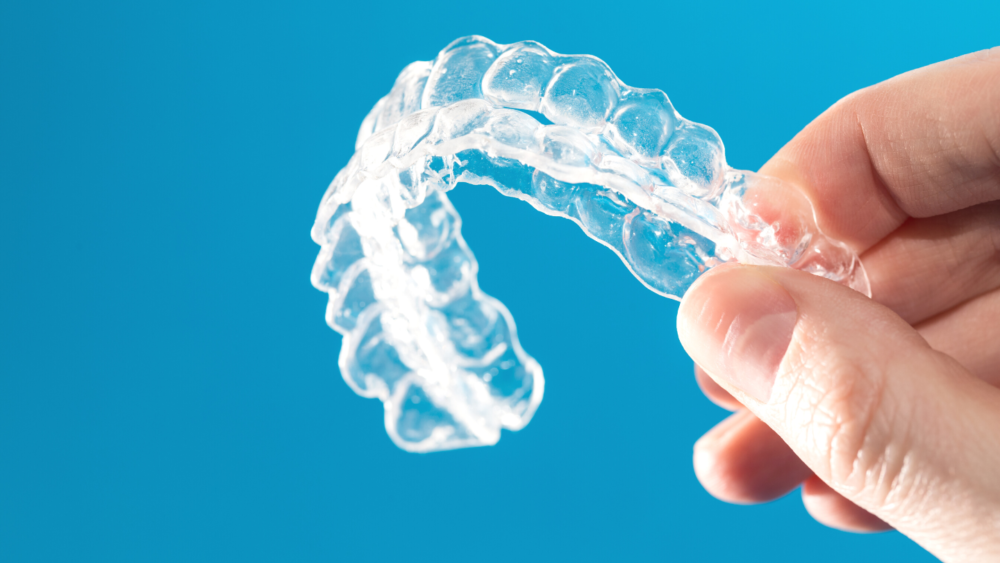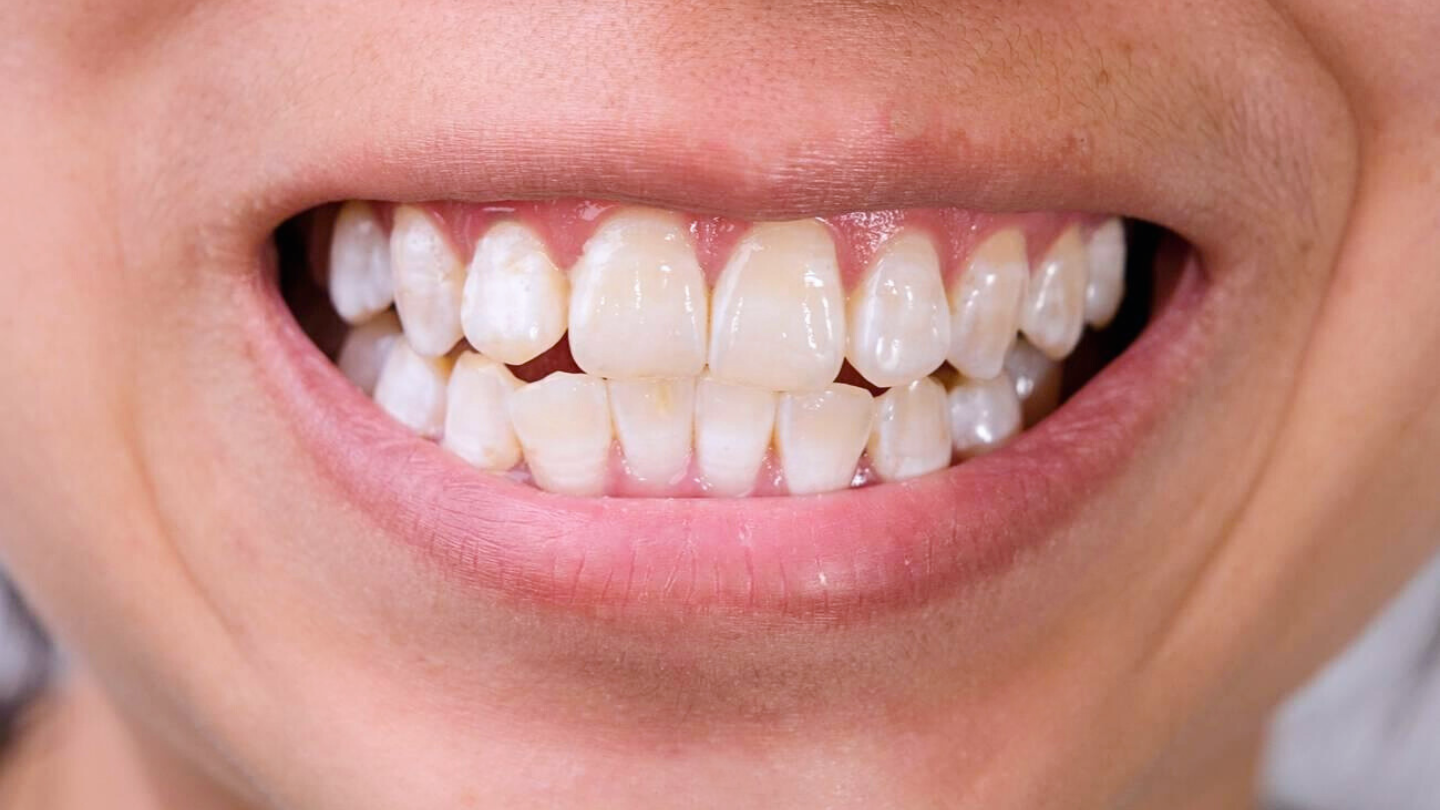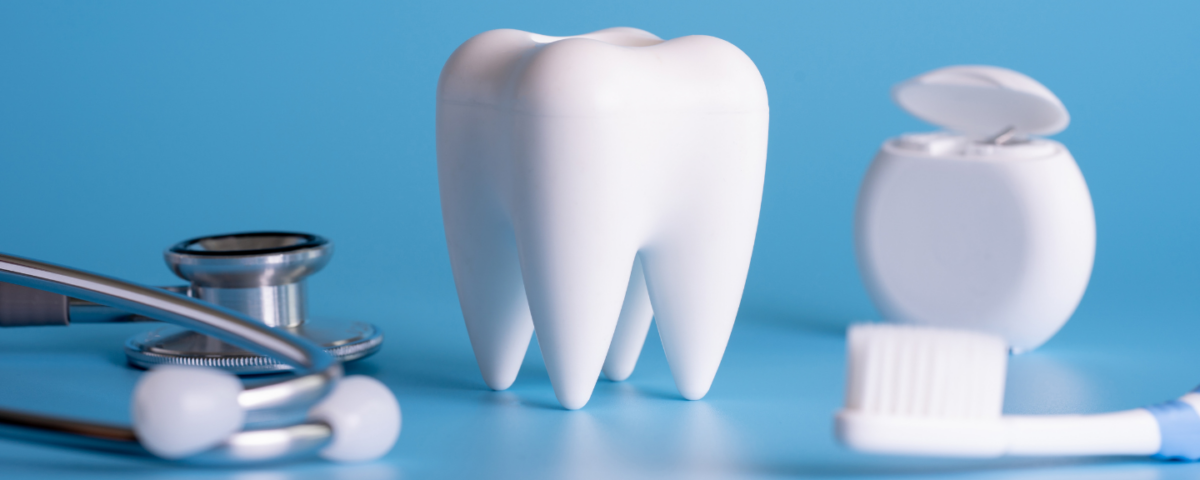
How to Care For Your Invisalign Aligners
March 23, 2023
Why Do I Have White Spots On My Teeth?
May 3, 2023While regular visits to your dentist for exams and cleanings help remove plaque and find problems, most of the work in maintaining good oral health starts with you. Having a good oral hygiene routine between dental visits makes a major difference in whether you develop cavities or gum disease.
If you wonder “what is the best oral hygiene routine”, we can tell you it includes brushing, flossing, a good diet, and regular dental care.
Choosing and Using a Toothbrush for Proper Brushing
Whether you choose an electric or manual toothbrush is up to you. Brushing all surfaces of your teeth for a full two minutes is more important than the specific type of toothbrush you have. Some people find using an electric toothbrush with a built-in timer easier to use. However, manual toothbrushes cost much less and don’t require batteries or charging.
Your toothbrush does a lot of work removing food particles and plaque from your teeth. However, the bristles will wear down and bend over time, making the brush less effective. Therefore, you need to keep an eye on the state of your toothbrush and replace it every three to four months to ensure that its bristles stay in top condition.
Brush your teeth twice a day, especially before bed. When brushing, hold the brush at a 45-degree angle to your gums. This positioning ensures that you get the areas where your teeth meet the gums. Removing food and plaque here can prevent gum disease.
Don’t forget to get all the surfaces. Brush the front, back, and sides of your teeth, and make sure to get behind your back teeth to remove food and plaque. Thoroughly rinse your toothbrush off after use and air dry it in an upright position to prevent germs from accumulating on the brush.
What Type of Toothpaste Should You Use?
When choosing toothpaste, make sure that it contains fluoride. The American Dental Association reports that using fluoride toothpaste effectively prevents cavities better than products that don’t contain fluoride.
After brushing your teeth, don’t rinse immediately or eat or drink for half an hour to allow the fluoride from the toothpaste to have prolonged contact with the teeth and more effectively fight cavities.
Is Flossing Really That Important?
Flossing is exceptionally important in protecting the health of your gums and teeth. And yes, your dentist can tell if you don’t regularly floss because you’ll have plaque and tartar between the teeth or early signs of gum disease. Flossing removes plaque and food from areas between your teeth where your toothbrush cannot reach.
If standard string floss is difficult for you to use due to mobility issues or other reasons, try flossing picks that only require one hand to use. Or consider flossing tape instead of string floss for more comfort during flossing. Talk to your dentist for recommendations on a type of floss that works best with your oral health and mobility needs.
How Often Should You Visit the Dentist?
How often should you see a dentist for the best oral health? Generally, you should schedule visits at least twice a year. However, your dentist might recommend that you come in more often.
Reasons you may need more frequent dental exams or cleanings include having gum disease, having a chronic dry mouth, being pregnant, smoking, or having another condition that increases your chances of oral health problems.
Always ask your dentist for personalized recommendations on dental visit frequency.
How Diet Plays into Oral Hygiene
A good diet low in sugary foods and drinks and high in fruits and vegetables helps your oral health more than you think. Your body needs vitamins and minerals to maintain healthy gums and teeth. Poor nutrition could negatively impact your oral health. For example, if you don’t have enough calcium in your diet, you could develop white spots on your teeth.
Acidic and sweet foods and drinks can contribute to dental decay or wear down tooth enamel. If you eat or drink these types of foods, rinse out your mouth with water to neutralize the acid. Wait for at least 30 minutes before brushing your teeth, too. This waiting gives your saliva a chance to naturally rinse off your teeth even more and reduce the acidity in your mouth. If you brush immediately after eating an orange or drinking a soda, you will only rub the acid into your teeth and potentially cause more harm.
Drinking water is another way to maintain good oral hygiene, especially if you choose tap water. Most cities add fluoride to their drinking water to help reduce cavities in the population. Drinking tap water quenches your thirst without sugar, costs nothing, and gives your body extra fluoride to prevent cavities.
Putting Together the Elements of the Best Hygiene Routine
The best oral hygiene routine consists of the following elements:
- Brush for two full minutes at least twice a day with a toothbrush that has good bristles
- Floss between your teeth each time you brush
- Visit your dentist at least twice a year or as recommended
- Eat a healthy, balanced diet that prevents nutritional deficiencies that can damage oral health
- Drink plenty of water and avoid too many acidic sodas, teas, coffees, or sports drinks
With good oral hygiene habits, you can have great-looking, strong, and healthy teeth for life. Feel free to ask your dentist for tips on the best way to brush and floss, especially if you have any questions about the techniques or products to use.
Your adult teeth should last for life. With good oral care, they can.
See Us at Langley Dental Care for The Best Oral Hygiene Routine
Checkups and professional cleanings are essential parts of good oral hygiene. Choose us at Langley Dental Care to help you have healthy teeth for your entire life.
Call us to schedule a visit if you need routine care or have a dental concern. We want to help you have a healthy, beautiful smile through professional dental care as part of your oral hygiene routine.



